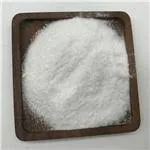The Role of PQQ in Longevity Unveiling the Potential of Pyrroloquinoline Quinone
In the realm of nutritional science and longevity research, pyrroloquinoline quinone (PQQ) has garnered significant attention. Known for its multifaceted roles in cellular function and health, PQQ is a small molecule that naturally occurs in many foods, including fermented soybeans, spinach, and green tea. As scientists delve deeper into its benefits, the link between PQQ supplementation and longevity has emerged as a fascinating area of study.
PQQ is recognized for its powerful antioxidant properties. It helps combat oxidative stress, which is a major contributor to cellular aging and a variety of age-related diseases. Oxidative stress occurs when there is an imbalance between free radicals and antioxidants in the body, leading to cellular damage. PQQ’s ability to neutralize free radicals and protect cells from damage is crucial for maintaining cellular integrity over time. By promoting a healthier balance, PQQ may help mitigate the effects of aging and extend lifespan.
The Role of PQQ in Longevity Unveiling the Potential of Pyrroloquinoline Quinone
Moreover, PQQ has been shown to have neuroprotective effects. Research indicates that this compound can stimulate the production of nerve growth factor (NGF), a protein vital for the growth, maintenance, and survival of neurons. Enhanced NGF levels can help in the preservation of cognitive function as we age. With neurodegenerative diseases becoming a significant concern in the context of aging populations, PQQ's potential benefits for brain health are particularly noteworthy. By protecting neurons from damage and promoting neuronal growth, PQQ may be a key player in supporting cognitive longevity.
pqq longevity

In addition to its cellular benefits, PQQ has demonstrated potential in reducing inflammation. Chronic inflammation is often termed the silent killer due to its link to various age-related diseases such as heart disease, diabetes, and cancer. PQQ's anti-inflammatory properties can help counteract chronic inflammation, thereby reducing the risk of developing these conditions. By addressing inflammation at the cellular level, PQQ may promote overall health and well-being as we age.
While the role of PQQ in longevity is promising, it's essential to approach supplementation with a balanced perspective. Most of the research into PQQ has been conducted in animal models or in vitro studies, meaning that human data is still developing. However, preliminary findings suggest that PQQ supplementation can be beneficial, particularly in supporting energy levels, cognitive function, and cellular health. Individuals considering PQQ supplements should consult with healthcare professionals to understand the appropriate dosage and potential interactions with other medications or conditions.
The future of longevity research may be influenced significantly by our understanding of compounds like PQQ. As the field continues to evolve, the development of targeted therapies that focus on mitochondrial health and oxidative stress reduction may become more prevalent. PQQ could be at the forefront of this revolution, leading to innovative approaches to enhance healthspan—the period of life spent in good health—rather than just lifespan.
In conclusion, PQQ represents a fascinating area of study within the broader conversation on longevity. Its antioxidant properties, role in mitochondrial function, neuroprotective effects, and anti-inflammatory capabilities position it as a promising compound for promoting a longer, healthier life. As research unfolds, we may find that incorporating PQQ into our diets—through natural food sources or supplementation—could be a valuable strategy in the quest for longevity and optimal health.

